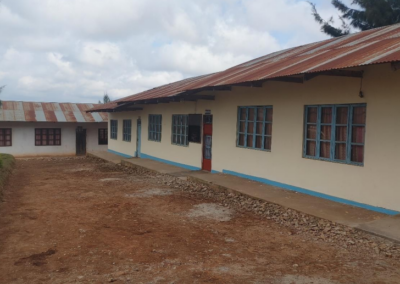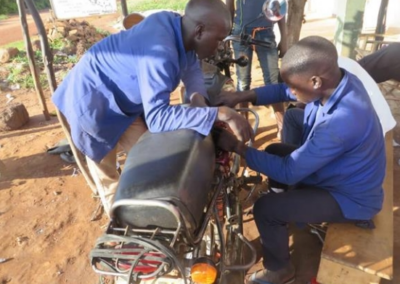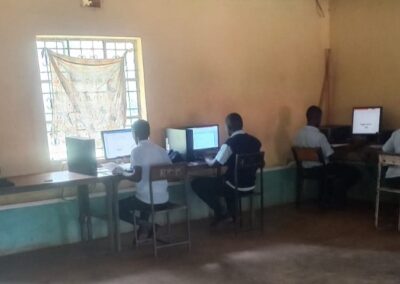An amount of € 4,500 is required to purchase the training equipment and tools. The Van Doorn Foundation is looking for sponsors to support this project!
Amount collected: € 4,500,-
Project information
The situation
The importance of the project
A survey conducted in the Mushili and Kawama townships indicated that there are higher poverty and unemployment levels than in other parts of the city; a lot of young people do not go to school due to lack of money to pay for school / training fees; and unemployed youth and adults increasingly get involved in theft and prostitution. These conditions also attract other criminals to the townships. The church established youth training centres in these townships to provide counselling, information, and recreation to the youth. Prison Fellowship will provide vocational training in these youth centres, equipping youth with skills, creating employment opportunities, reducing poverty and crime in the area.
The implementing organisation
Vocational training is implemented at Ndola’s Kansenshi prison and will be implemented in the youth centre in Mushili and in the youth centre in Kawama.
Prison Fellowship is affiliated with technical educational vocational training authority (TEVETA) which provides and regulates training schools in Zambia. TEVETA sets examinations and only trainees who meet their qualifications receive certificates. TEVETA also ensures that all training providers adhere to their standards without compromising their quality.
The envisaged project results
As a result of the training, youth from the two townships will be empowered with skills (tailoring and basic computer knowledge) that allows them to gain employment or eventually run their own businesses (tailor workshop, secretarial services, access to internet or recording their own music). The unemployment and poverty among youth in those two townships will consequently be reduced as well as their involvement in criminal activities.
The chance of sustainability
Prison Fellowship’s training programme in the townships can fund itself. The training cost amounts to € 26 per trainee per year for the training material and salaries of the instructors. The trainees pay a training fee of € 18 per trainee per year (just € 1½ per month) which is more symbolic than to cover the cost. With sales of the products (pullovers and other clothes) made by the trainees during the training and the services (secretarial and internet services) provided during the training, additional revenues are generated amounting to an average € 12 per trainee per year. With this the youth centres are able to pay for the running cost of the training and are only depending on national and international support for larger investments (building and equipment).
The result
At the beginning of 2022, equipment was purchased, and the three-month computer courses started for 20 trainees in the Kawama Youth Centre.
In mid-2022, sewing machines and other supplies were purchased and the three-month tailoring training started for 36 trainees in the Mushili Youth Centre.

Dear visitor,
We are grateful that you are willing to support us with a donation!
Please fill in the fields below and push the button PAY to transfer the amount by iDeal.




